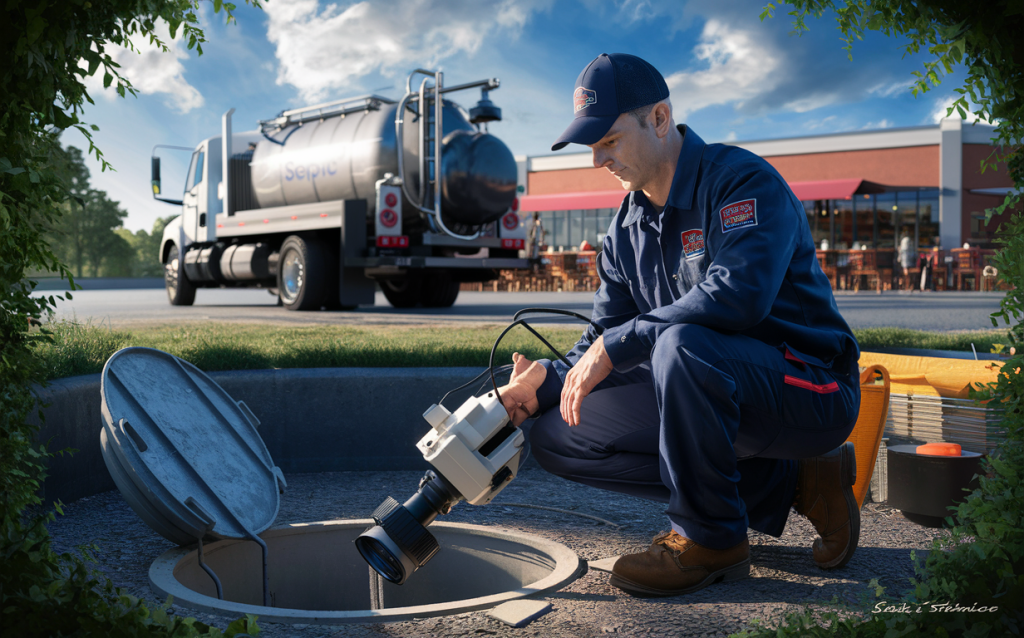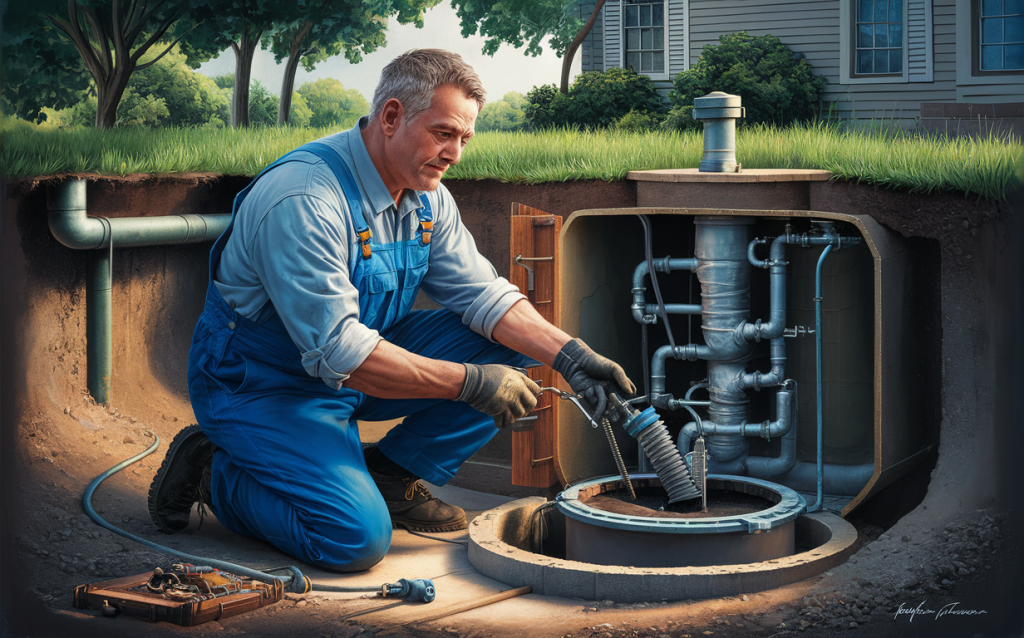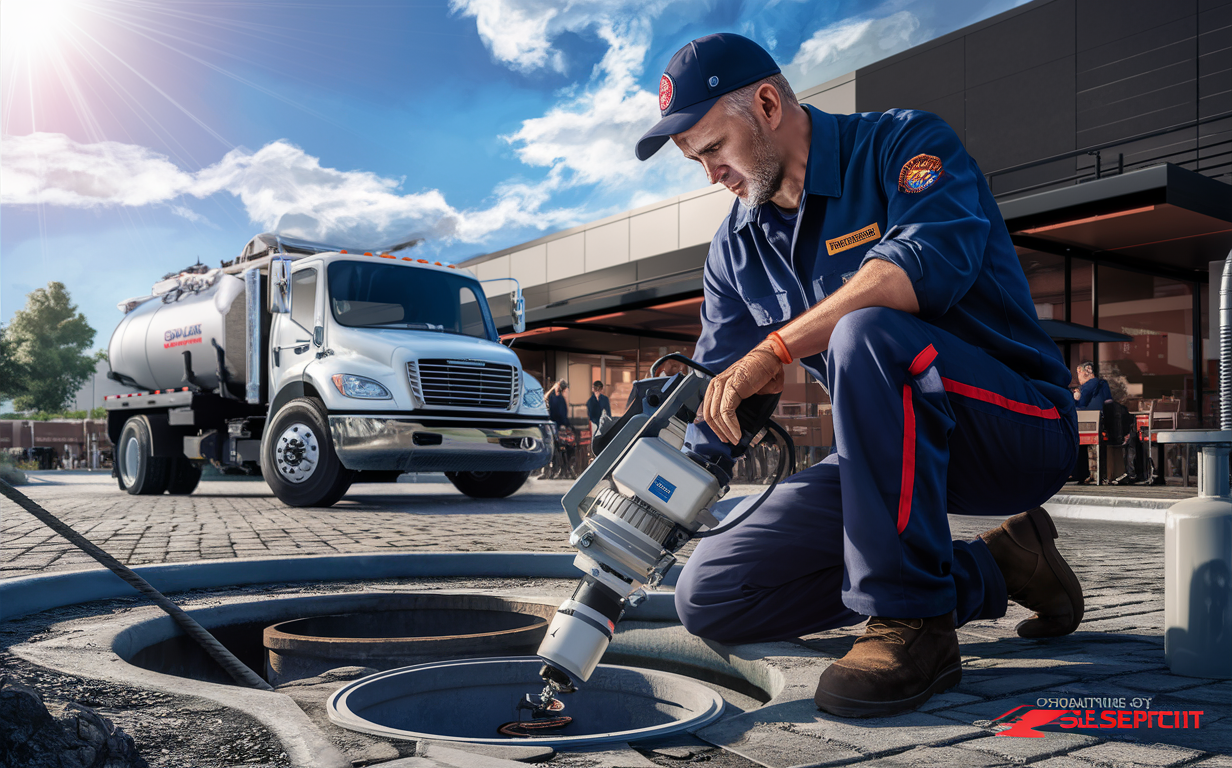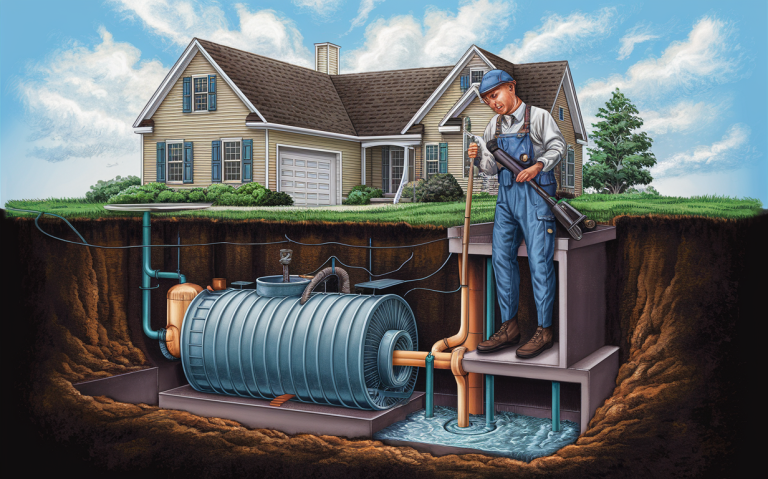Expert Dose Pump Repairs and Replacement: Remarkable Guide
Dose pump repairs and replacement: Expert strategies for septic system maintenance. Learn signs of failure, and maintenance tips.
When your septic system’s dose pump fails, it can lead to severe issues if not addressed immediately. Dose pump repairs and replacements are critical to maintaining the efficiency of your septic system. At Texway Wastewater Services, we specialize in identifying and fixing these problems to keep your system running smoothly.
Table of Contents
Key Takeaway
- Dose pumps are vital for distributing wastewater evenly in septic systems.
- Regular maintenance and inspections can prevent pump failures.
- Knowing the signs of a failing dose pump can save you time and money.
- Professional repairs and replacements ensure your septic system operates efficiently.
- Our experienced team provides first-hand insights and solutions for dose pump issues.
The Importance of Dose Pump Repairs and Replacement

Dose pumps are a critical component in septic systems, ensuring that wastewater is evenly distributed across the drain field. This process is essential for preventing the overloading of your drainage system, which can lead to backups and potential contamination of the surrounding environment.
What Happens When Your Dose Pump Fails?
A failing dose pump can cause uneven distribution of wastewater, leading to saturated drain fields and potential system failure. Early detection and prompt action are crucial to avoid costly repairs and environmental hazards.
Signs Your Dose Pump Needs Attention
Recognizing the early signs of a failing dose pump can save you from extensive damage. Here are some common indicators:
- Unusual noises from the pump area
- Frequent alarms from your septic system
- Slow drainage in sinks and toilets
- Standing water around the drain field
- Unpleasant odors near your septic tank
Routine Maintenance: The Key to Longevity
Regular maintenance and inspections are essential for the longevity of your dose pump. Here are some maintenance tips to keep in mind:
- Schedule annual inspections with a professional service.
- Clean filters and check for blockages regularly.
- Ensure electrical components are functioning correctly.
- Monitor water levels to detect any irregularities.
Routine Maintenance Checklist: Dose pump repairs and replacement
| Maintenance Task | Frequency | Description |
|---|---|---|
| Inspect electrical connections | Monthly | Ensure all electrical components are secure and functioning. |
| Clean filters and check for clogs | Every 3 months | Remove debris from filters and check for blockages in the system. |
| Check water levels | Every 6 months | Ensure water levels are consistent and within normal ranges. |
| Schedule professional inspection | Annually | Have a professional assess the entire system for potential issues. |
Professional Dose Pump Repairs

When your dose pump needs repair, it’s essential to hire a professional to ensure the job is done correctly. Here are the steps our team at Texway Wastewater Services follows:
- Initial Assessment: We inspect the system to diagnose the problem accurately.
- Detailed Inspection: Our technicians check all components, including electrical connections and physical parts of the pump.
- Repair or Replacement: Based on our findings, we either repair the existing pump or recommend a replacement.
- Testing: We test the system to ensure the pump is working correctly and efficiently.
Common Dose Pump Issues and Solutions
| Issue | Cause | Solution |
|---|---|---|
| Electrical failure | Faulty wiring or connections | Inspect and repair electrical components. |
| Mechanical wear and tear | Aging pump parts | Replace worn-out parts or the entire pump. |
| Blockages in the system | Debris buildup | Clean filters and remove blockages. |
| Inconsistent water levels | Malfunctioning float switches | Adjust or replace float switches for accurate water monitoring. |
Choosing the Dose Pump Repairs and Replacement
Selecting the right replacement pump is crucial for the efficiency of your septic system. Here are factors to consider:
- Capacity: Ensure the pump can handle your system’s volume.
- Compatibility: The pump should be compatible with your existing system.
- Energy efficiency: Choose a pump that is energy-efficient to save on utility bills.
- Durability: Opt for a durable pump to reduce the frequency of replacements.
The Installation Process
Replacing a dose pump involves several steps to ensure proper installation and functionality:
- System Shutdown: Safely shut down the system to prevent any accidents.
- Pump Removal: Carefully remove the old pump from the system.
- New Pump Installation: Install the new pump, ensuring all connections are secure.
- System Testing: Test the entire system to confirm the new pump works efficiently.
Common Myths About Dose Pumps
There are several myths about dose pumps that need to be debunked:
- Myth: Dose pumps do not need regular maintenance.
- Fact: Regular maintenance is crucial for the longevity and efficiency of the pump.
- Myth: All dose pumps are the same.
- Fact: Pumps vary in capacity, efficiency, and compatibility, making selection important.
- Myth: DIY repairs are sufficient for dose pump issues.
- Fact: Professional repairs ensure the problem is correctly diagnosed and fixed.
Common Misconceptions About Septic Systems
- Septic systems don’t require regular maintenance.
- Only older systems need inspections.
- Chemical cleaners are safe for septic systems.
- Small leaks don’t cause significant problems.
- All septic system issues are expensive to fix.
What causes dose pumps to fail?
Dose pumps can fail due to electrical issues, mechanical wear, blockages, or improper maintenance. Regular inspections can help identify potential problems before they lead to failure.
How often should dose pumps be inspected?
Dose pumps should be inspected at least once a year by a professional. However, more frequent checks may be necessary depending on the system’s usage and age.
Can I replace a dose pump myself?
While it’s possible to replace a dose pump yourself, it’s not recommended. Professional installation ensures the pump is correctly installed and functioning, preventing future issues.
Effective Dose Pump Repairs and Replacement
Keeping your septic system’s dose pump in good working order is essential for the overall health of your system. Regular maintenance, prompt repairs, and professional replacements are vital to avoid costly issues and ensure efficient operation. Trusting professionals like Texway Wastewater Services ensures that your septic system remains reliable and efficient.
For any dose pump repairs or replacements, contact Texway Wastewater Services at (817) 889-4007. Your septic system’s efficiency is our priority.







 Texway Wastewater Services is a septic, wastewater, and excavation company based out of Burleson, Texas and serving the surrounding areas. We specialize in
Texway Wastewater Services is a septic, wastewater, and excavation company based out of Burleson, Texas and serving the surrounding areas. We specialize in